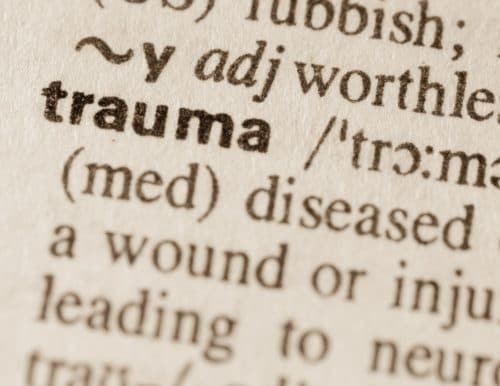 Our experiences throughout life can affect our mental health in the present day. Our experiences while growing up often shape how we choose to respond to situations and treat ourselves. Childhood abuse may include (but is not limited to) physical abuse, emotional abuse, neglect, and household issues (substance abuse, witnessing events, etc). Our childhood experiences and relationships are not limited to our relationships with our parents but include all family members, friends, and authority figures. When we explore and process abuse or trauma that may have occurred during childhood, it is important to proceed with caution, steadiness, and as much self-acceptance as possible. Childhood abuse and trauma can lead to difficult long-term effects but do not define you. Here are five long-term impacts of childhood abuse.
Our experiences throughout life can affect our mental health in the present day. Our experiences while growing up often shape how we choose to respond to situations and treat ourselves. Childhood abuse may include (but is not limited to) physical abuse, emotional abuse, neglect, and household issues (substance abuse, witnessing events, etc). Our childhood experiences and relationships are not limited to our relationships with our parents but include all family members, friends, and authority figures. When we explore and process abuse or trauma that may have occurred during childhood, it is important to proceed with caution, steadiness, and as much self-acceptance as possible. Childhood abuse and trauma can lead to difficult long-term effects but do not define you. Here are five long-term impacts of childhood abuse.
-
Reactivity (Triggers)
When an individual experiences abuse, which can also be identified as trauma, they can experience long-term effects with reactivity. Reactivity is the way an individual reacts to social and environmental situations. For example, a disagreement with another individual can be triggering for an individual who experienced childhood abuse, and they may respond in similar ways to their response to childhood abuse. This can vary from becoming overly defensive or aggressive to emotionally shutting down and blaming themself for feeling that they caused an issue.
-
Frontal Lobe and Right Hemisphere Delays
Studies have shown that childhood abuse, or any form of trauma, delays the development of the frontal lobe and right hemisphere of the brain The frontal lobe is largely responsible for processing long-term thinking and expressive thinking. The right hemisphere has a large role in overall comprehension and emotional and communicative development/function. When these areas are impaired in any capacity, an individual can have difficulties (sometimes severe) with emotional awareness, emotional comprehension, and communication, specifically in the area of emotional wellbeing. The brain and body will begin to rely on left hemispheric skills to over-compensate.
Some individuals who have experienced childhood abuse/trauma rely on logical thinking, clear and detailed communication, and numerical thinking patterns. For such a person, conceptualizing and communicating feelings can be more difficult, and as a result, they find it challenging to engage and/or commit to relationships. It is important to note that neurological development is not strictly reliant on emotional experiences; environmental factors, including nutrition and physical activity, have a significant role in how the areas of the brain develop.
-
 Flight, Fight, or Freeze (Primitive Reflexes)
Flight, Fight, or Freeze (Primitive Reflexes)
One of the core components of our neurological and emotional functioning is our primitive reflexes. These reflexes are commonly identified as “baby reflexes” and include suckling, grasping, and startling. These reflexes tend to dissipate by the age of two but can re-surface due to developmental delays, or during times of stress, anxiety, trauma, and situations in which we are not in full control of our body, or feel unsafe.
The main reflex that may surface is the startle reflex. When we experience abuse and/or trauma, this may cause the startle reflex to re-surface and remain until the individual feels safe. However, if someone can not feel safe, then the startle response is activated regularly and this means that, essentially, the brain is in flight, fight, or freeze mode so often that an individual will feel on edge, irritable, reactive to situations, fatigued, and suffer brain fog. This will have negative effects on blood pressure, heart health, and neurological and cognitive functions.
-
Concerns with Interpersonal Relationships
Although those who may have experienced childhood abuse/trauma can experience different long-term effects, one common problem is with interpersonal relationships. Whether the perpetrator of the abuse is a parent, family member, friend, or stranger, it leaves a subconscious understanding that people cannot be trusted. You believe that you may risk getting hurt again by getting close to other individuals, no matter who they are. Distancing and isolating the self may become a defensive mechanism to avoid getting hurt. This may also appear through self-sabotage, in which some individuals may find that they cause conflict and relationships to end (sometimes subconsciously) due to fear of being hurt. These patterns can persist throughout life if untreated.
-
Dissociation
Dissociation is a state of emotionally/cognitively detaching from the moment. This may appear in a form of “spacing/zoning out,” which can occur when feeling triggered, or when in a constant state of flight, fight, or freeze. In some cases, individuals may lose the memory of the moment while they were dissociating. This can be a coping mechanism when feeling overwhelmed. It can be difficult to control it or to be aware of when it occurs. It can negatively affect relationships and day-to-day functions, such as work and personal goals.
Although these are possible effects of childhood abuse/trauma, it does not necessarily mean every survivor will experience them. Every person is unique and can respond differently. One of the most important factors in recovering from childhood abuse is exploring, processing, and practicing emotional and physical awareness. Learning to address childhood abuse/trauma can lead to internal relief and provide the skills to overcome any long-term effects of childhood abuse/trauma.
Contact us today to schedule a complimentary 15-minute phone consultation or to book an appointment.

